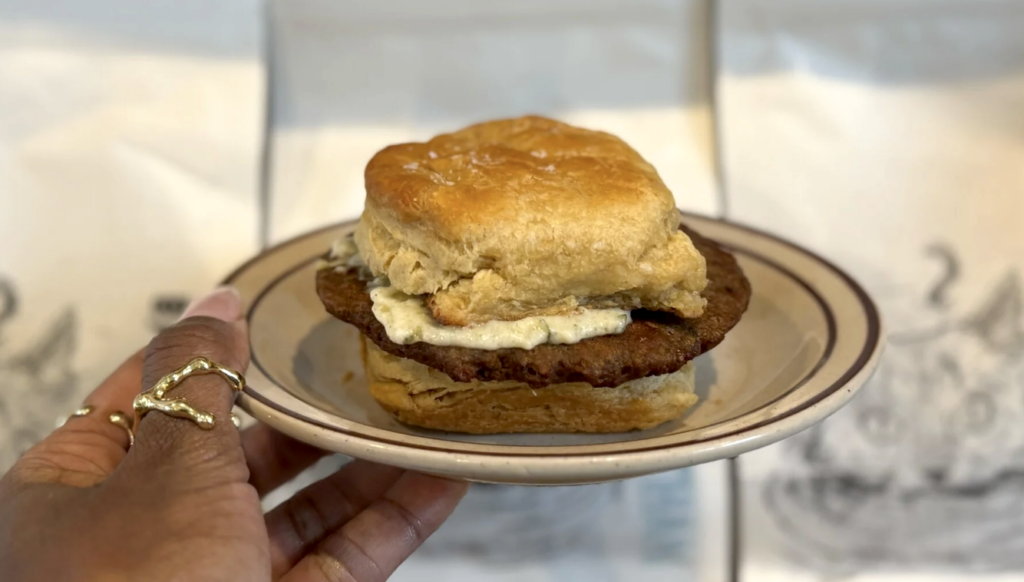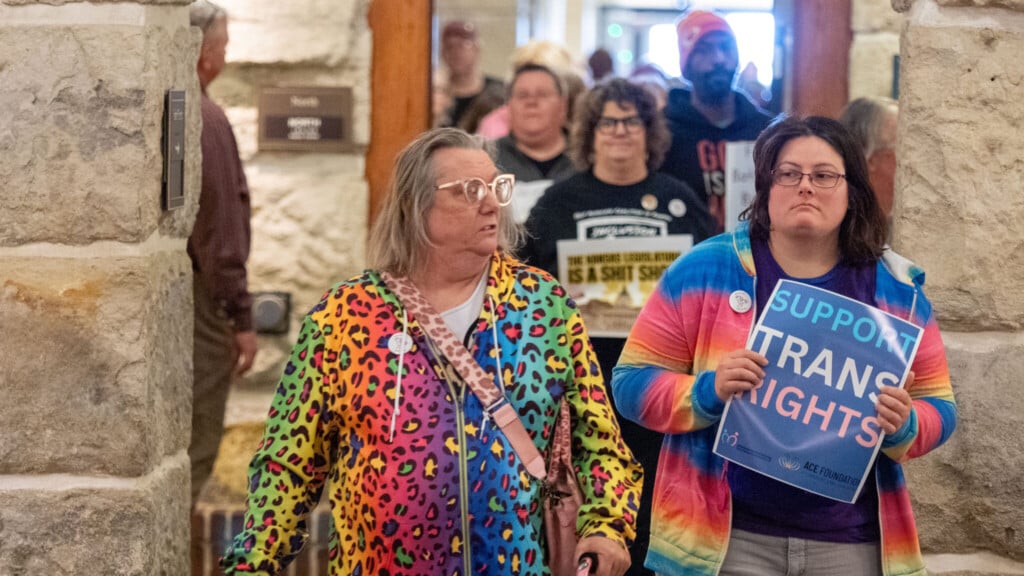The Pounds of Silence

The roughhousers of the Kansas City Rugby Football Club love the sound of a brutal hit. And this fall, the team’s newest recruit, 18-year-old Danny Clarke, intends to deliver it.
Sprinting across the field during a drill at Gillham Park, Clarke breathes in short, staccato bursts. His cleated feet pound the turf, growing louder as he lowers his head and lunges for a ball-carrying opponent. There’s a rubbery slap as ball hits flesh, then a sickening thud as man hits man and a muffled boom as they both crash to the ground.
It’s a bone-crush symphony. Clarke, however, can’t hear any of it. The 5-foot-7-inch 190-pounder is built like a college running back. He squats 875 pounds and benches nearly 350. He’s also deaf.
Nonetheless, Clarke has proven himself an upstart worth watching when the Newcastle Ale-sponsored club takes the field for its home opener against Springfield on September 24 at Seymour Field at Interstate 35 and Front Street.
In America, rugby is for athletic misfits. It’s commonly recognized as the second-most-popular sport worldwide, but most stateside teams have rosters filled with latecomers, guys who played something in high school or college and now have day jobs. The Kansas City Rugby Football Club was founded in 1964 by a fanatic named Gerard Seymour and was popular during the counterculture ’60s and ’70s. And over the past couple of decades, the sport has found an enthusiastic fanbase at the University of Kansas and the University of Missouri-Kansas City — though today most college programs are relegated to club status, receiving no money from the schools.
As a Division 1 team, the Kansas City Rugby Football Club — the players call their club “the city team” — is one of more than 100 squads forming the bottom rung for players climbing toward pro. Above Division 1 are 16 “super league” semi-pro teams, including the Kansas City Blues, whose players generally earn no salary but have larger sponsors to offset expenses. Finally, there’s the USA National Team, the Eagles, which competes internationally. Its players hope to be selected for European leagues, where the average salary breaks six figures.
Clarke could be the sport’s new poster child. The club has scouted players at high schools in the Olathe and Shawnee Mission districts, Rockhurst and, most recently, Central High School. Central, says Wayne Nicholsen, the player in charge of recruitment, hosts one of just a handful of inner-city youth-rugby programs in the country. The youth rugby league has expanded by about 25 percent a year since the start of this decade, says Colleen Reilly Krueger, who represents USA Rugby, the sport’s governing agency; there were 531 teams last year.
“By his senior year, he was a man among boys, and he crushed people,” city team captain Neil Snow says of Clarke.
Still, his hearing impairment has caused difficulties. “You have to get his attention, or he takes off and you’re running after him,” warns Nicholsen. But, he adds, “He’s got dad strength already.”
Clarke’s world was muted after he contracted a severe case of meningitis as a toddler. The second-youngest of four brothers, he learned about rugby by watching his older brothers play for their high school club team, the Gentlemen of Olathe. Clarke viewed it as an everysport: a combination of soccer kicks, football passes and tackling, and hockey face-offs.
“It’s more aggressive and it’s a different style, and something will always happen,” he tells the Pitch, speaking through interpreters from the Church of Latter Day Saints (the family is Mormon) at his Olathe home. Following the on-field action isn’t that difficult, he says. “I use body language, eye contact … most of the time I know what to do.”
But when Clarke joined the Gentlemen at age 14, both his opponents and his coaches had to figure out ways to stop him. Unable to hear the referee’s whistle, he’d lay brutal late hits on opponents that sparked fights among players. “He would put his hands up, but it didn’t stop people from getting pissed off,” Snow says.
“The hardest thing for Danny is he’d get a penalty, and the ref would try to explain it to him but he couldn’t get it across so he kept doing it,” says Michael Cox, who coaches the Gentlemen. Cox moved Clarke from flanker — an outside, running-back-style position — to hooker, a quarterback-like position designed for starting plays and up-front offense. “He took to it like a natural,” Cox says.
Clarke played football, too, but says he struggled to get time on the field for Olathe South High School. Eventually, he dominated as a middle linebacker and fullback for the ad-hoc team at the Kansas School for the Deaf.
In Cox, Clarke found a coach who recognized his athletic talent and helped him harness it. The Gentlemen won the Kansas High School State Championship in 2003, and the team was runner-up in 2004 and 2005. Clarke was MVP as a junior; as a senior, he was voted most valuable forward and played on the regional all-star team. He drew scholarship offers from the University of New Mexico and Regis University, two of the few schools that still have rugby teams (and serve as farm leagues for professional recruiters). He hasn’t chosen a school yet.
During the Gillham Park practice, Clarke stands at attention, intuiting his instructions through body language while Coach Andy Dujakovich (who used to play for the Eagles) issues commands.
When the drill starts, Clarke watches his teammates call for the ball. When it’s his turn, he adapts everything he’s seen and executes perfectly, putting his hands out, trailing the passer, running hard and low, and yelling for the ball in the split second when he’s open.
But when it’s Clarke’s turn to chuck the ball, he hesitates. Most sports have no-look plays, but usually the passer can hear the guy behind him call for the ball. Unwilling to trust that his teammate is behind him, Clarke looks back to check. That’s when a defender comes in on his blind spot — he doesn’t hear this, either — and clotheslines him.
Still, Dujakovich says, Clarke is a potential starter. “He’s got a great work ethic and a great read of the game,” he says. “The main thing is his mobility, and he’s not scared.”




